Time for some real talk about Africa. Doing business there is neither easy nor for the faint of heart. It’s a continent with a history of rich countries profiting from its pain, and it’s short on success stories where everyone wins and nobody loses. This could change all that.
The digital divide is the gap between folks who benefit from aspects of the digital age, from wireless phones to internet access and beyond, and those who don’t. People without the internet and information and communication tech are at a distinct disadvantage in terms of education, commercial, industrial and employment related opportunities when compared to those who have it. Also, forget about democratic participation if you don’t have the tech. Modern democracy is technologically moderated and upgraded tech is one of the price of citizenship. It led the United Nations to declare internet access a human right in 2016 and it’s 100% right.
But outside of soft power and the blabbering of toothless supranational organizations with no mandate beyond brow-beating, the incentives to close the gap are largely financial and defense related, which are really the only decisions that most governments give a shit about when it comes down to it.
The divide also exists on multiple levels and multiple ranges, stretching from the local to the global. The local divide excludes the furthest reaches of Canada, including some spots in British Columbia that aren’t really accessible. But our telecommunications companies, funded by a grant from governments at all levels, are looking to patch that up.
That’s Canada, though. We’re one of the richest countries in the world—capable of throwing our economic weight around on the world stage—getting NGOs involved and incentivizing publicly traded companies with fat contracts to extend their services where they wouldn’t think to go otherwise is well within their reach. What if the government is poor (or worse, corrupt) then there’s probably far worse problems than the ability to get on the internet?
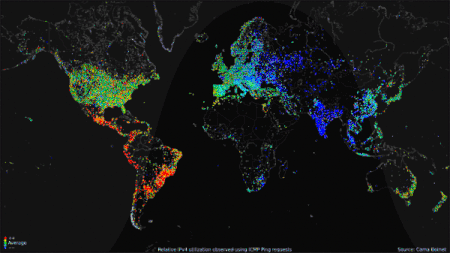
But there’s opportunity hidden in the kernel of every significant technological problem, and this is absolutely no exception.
Enter NuRan Wireless (NUR.C).
NuRan Wireless supplies mobile and broadband wireless infrastructure. They offer a radio access network, the core network it runs off of, and backhaul products, with the intention of dropping ownership costs, thereby creating opportunities for not only established network operators, but those struggling to get their own off the ground. That means indoor coverage, isolated rural communities, and also offshore platforms and ships.
The company’s business strategy involves building and operating cell towers and monetizing the assets through what they call ‘Network as a Service’ (NAAS) revenue streams. Mobile network operators upgrade their networks without excess capital investments, pay a service fee, either through a revenue share or fixed-opex model to cover in-country operating costs. Contracts generally span up to 10 years, which are supposed to lock in regular payments.
Low cost for high tech
This is the GSM Lite-cell. It’s one example of NuRan Wireless’ tech offerings.
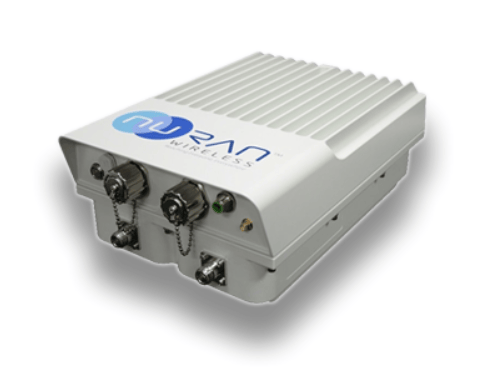
GSM stands for Global System for Mobile Communications. It’s the standard developed in Europe in the 1990’s for second-generation (2G) cellular networks used by devices like cellphones and tablets. By the mid-2010s, it became a global standard for mobile communications achieving over 90% market share, and operating in over 193 countries and territories. It’s since been upgraded three times, and is presently in the fifth generation (5G) range. The technology isn’t widely understood outside of tech circles, and is the source of so many crazy conspiracy theories.
Folks in impoverished nations and remote places know this kind of technology as something they can access when they go to the city. It’s a hand-carried base station which you can mount to a tower. No machinery required for installation, nor any kind of shelter to protect it. The antennas connect directly to the unit, there’s no need for expensive radio-frequency (RF) components, and its low power consumption favours comparably with the high CAPEX associated with solar panels or batteries, or the OPEX due to diesel-powered sites.
Most telecommunication grids, including phone and internet, are expensive to implement and maintain, so there’s no promise of return on investment for telecommunications companies to extend the grid out to reach them. NuRan’s easy to handle, easy to install tech fixes that by reducing overall construction and maintenance costs.
Here’s what it offers:
• Rural coverage
• Roadside coverage
• Low density villages
• Remote sites
• Developing countries / Emerging Markets
• Private networks
Africa: No risk no reward
Normally, the next step involves the investor deck but there doesn’t seem to be one, but their website is suitably informative. If you’re looking for where they’re doing business, you need to go to their most recent spate of releases.
Their proposed memorandum of understanding (MOU) with MTN for their network as a service model in south Sudan. Another MOU with West African telecom provider, Telinno-Consulting, to set up shop in Mali, West Africa. Add to that Sierra Leone Telecommunication Company in Sierra Leone, West Africa, through the deployment of sites through the build, own, operate and transfer (BOOT) revenue-share model. This adds to their present operations in Cameroon and the Democratic Republic of Congo (DRC).
Here’s their Cameroon rollout:
- First set of 48 sites have been acquired and the procurement process has been completed. During this process the company has identified significantly higher population densities than anticipated.
- Delivery of all materials and networking equipment necessary to build the sites to Douala, Cameroon, is expected to be completed by the end of July, 2021.
- The entire 48 sites are expected to be acquired by July, 2021, and fully operational in September, 2021, at which time NuRan will start invoicing Orange Cameroon.
- The second set of 74 sites have been selected. The site planning and procurement process for the 74 sites is expected to be completed in May, 2021, with delivery of materials and networking equipment in order to have the site operational and delivering revenue in December, 2021.
- The site selection and site acquisition are currently continuing for the remainder of the 242 sites.
- A revised financial analysis of the initial 122 sites selected suggests a 50-per-cent gross revenue increase to approximately $3-million per year compared with initial projections of $2-million per year therefore resulting in potential gross revenue of $30-million over the 10-year life of the contract as opposed to $20-million that was initially projected. This is primarily due to increased population densities from those previously estimated. This does require higher specification equipment than was previously budgeted which is expected to increase the build costs by approximately 10 to 15 per cent.
- NuRan has signed an agreement with Eutelsat for the satellite backhaul managed services. Eutelsat has a fleet of 39 satellites serving broadcasters, video service providers, telecom operators, Internet service providers and government agencies operating across Europe, Africa, Asia and the Americas. Eutelsat is one of the leading operators in the commercial satellite business.
There’s absolutely no doubt whatsoever that every country on that list needs technological support, but there are three specifically, those being Sierra Leone, the DRC and the Sudan, which should raise red flags for anyone in the know. And when you’re dealing with the various polities of sub-Saharan Africa, being in the know is what keeps you and your investment safe.
Here’s an overview of the situation in the DRC from the Electoral Institute for Sustainable Democracy in Africa (EISA) and Human Rights Watch:
“The Democratic Republic of Congo faces a worsening humanitarian, human rights, and security crisis. The consequences have been devastating for the Congolese people, with some 4.5 million people displaced from their homes – more than in any other country in Africa – and 2 million children at risk of starvation. Tens of thousands of refugees have fled into Uganda, Angola, Tanzania, and Zambia in recent months – raising the specter of increased regional instability if the crisis is not contained.”
How about the Sudan?
“Sudan’s first year of a three-year transition to democratic rule following the dramatic ouster of President Omar al-Bashir in 2019, was marked by a failing economy, political tensions and continuing popular protests for justice and reforms. These challenges were compounded by the Covid-19 pandemic,” according to Human Rights Watch.
These are far from optimal places to do business and a ten year contract sounds great until you come face to face with the prospect that the political landscape can change on a dime. The rebels in the north of the DRC (along with the Zika virus), the Ebola epidemic in Sierra Leone, make doing business there complicated for any company. But that’s the nature of risk. You go where the need is greatest and set up shop. This company isn’t going to compete with Comcast to the south of us, or any of the big name telecoms here in Canada, but it could become a giant in Africa if the right conditions are met.
Now let’s take a glance at their balance sheet.
The numbers
First thing that pops out is the revenue position: $410 488 for three months. A solid million dollars less than last year. Not unexpected, though. We are in the middle of a global pandemic. Next item that pops out is the cash position, which has recently been bolstered by a recently closed private placement:
“NuRan Wireless Inc. has closed its previously announced non-brokered private placement of common shares and warrants of the company for gross proceeds of $11,065,433. In connection with the offering, the company issued 4,617,930 units (each comprising one common share and one warrant) for gross proceeds of $7,065,433 and received a lead order to subscribe for 2,614,379 common shares and 182,000 warrants for gross proceeds of approximately $4-million from Space-Communication Ltd. (Spacecom), an international satellite communication provider. Following closing of the offering, Spacecom holds a 9.3-per-cent equity stake in the company on an undiluted basis.”
What you really need to dig for, and what’s probably the biggest, most peculiar milestone this company needs to meet is their debt.
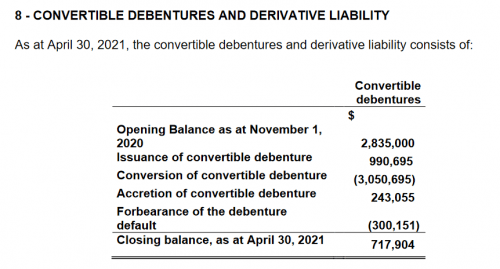
Dig a little further and you learn that the debt’s due-date was changed to December 31 of this year due to a problem meeting their 10% per month interest obligations. They’ve since deferred that issue, and successfully renegotiated the new end date, but the point remains—that’s a lot of money going out compared to what they presently have coming in. It represents the biggest, most significant hurdle—getting the interest payments in on time, killing the debt as soon as possible, and finding a way to get more revenue through the door and in the coffers.
Africa represents a significant challenge and opportunity for any country willing to tackle it. The continent has a slew of problems, ranging from inter-tribal conflicts, epidemics (the least of which is COVID-19), malaria and a host of other issues, including animosity for colonial behaviours stemming from hundreds of years of abject violation.
The opportunity in Africa, contrary to what diamond corporations like De Beers might tell you with their actions, is actually in its people. The internet may very well be a human right, and closing the digital divide to some of the world’s poorest can’t be anything but a good choice. And hey! If you can make a little cash on the side while helping people, what’s the harm? Win win. Right?
—Joseph Morton
Full disclosure: NuRan Wireless is an equity.guru marketing client.

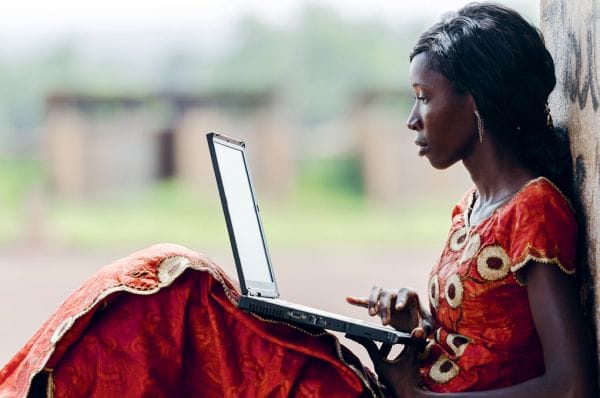



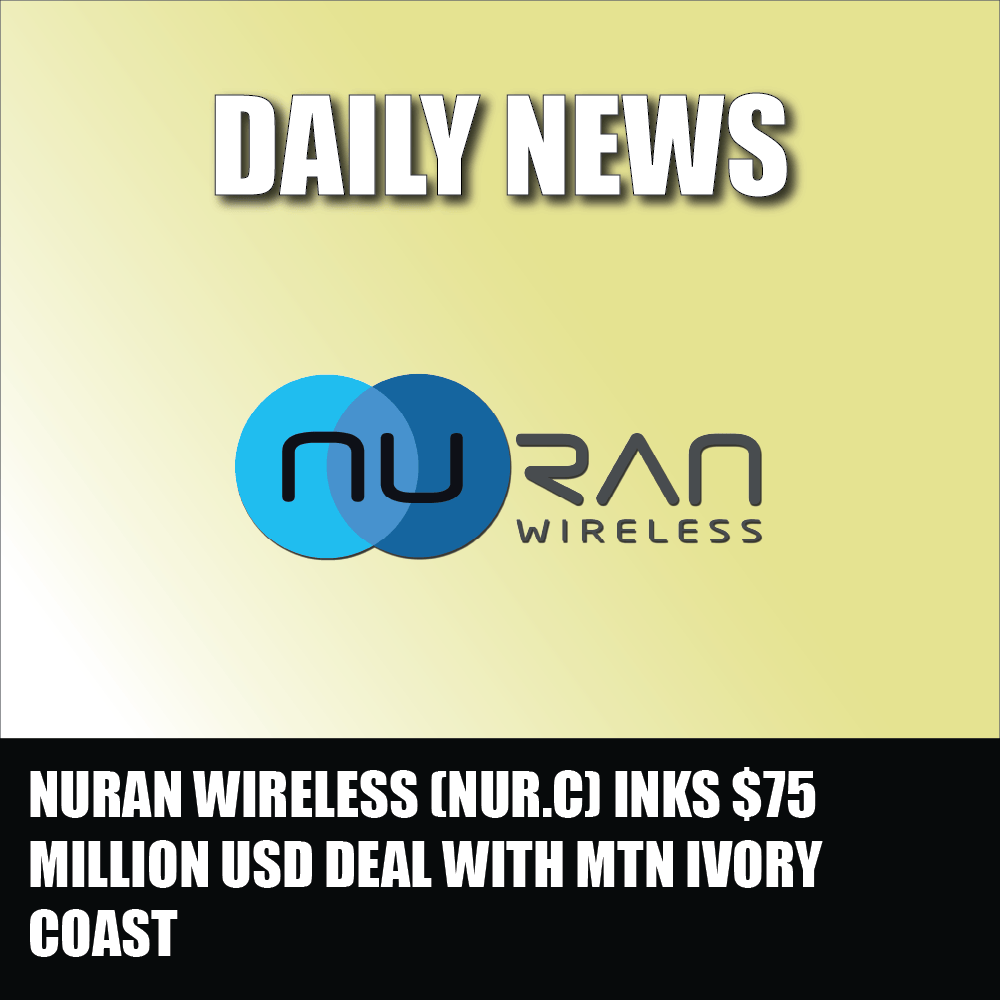
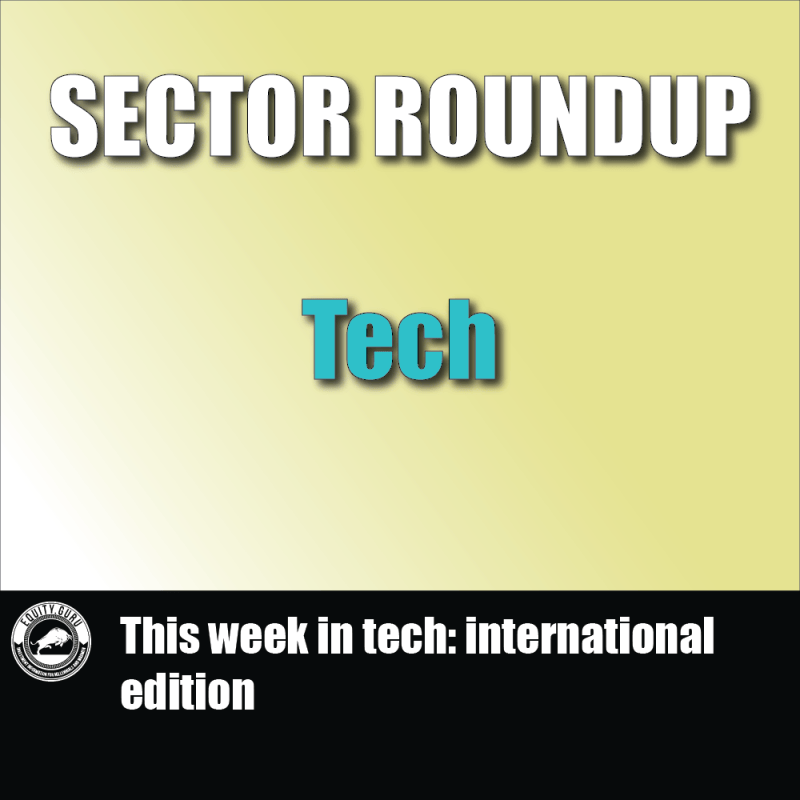
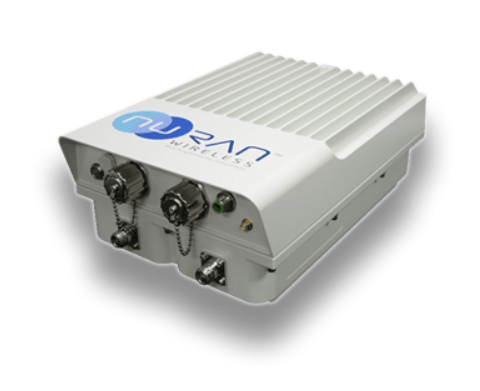
Thanks for the aritcle. 21000 shares long. OG investor in NuRAN. Hopefully the SP starts increasing.
Best of luck, for sure.
Also an og NuRan investor. This company is amazing. Francis L. turned the story around and this has billion dollar market cap potential now.
Oh, I forgot to mention. Leafstime is bullish too but he complains a lot about things that are in the past.